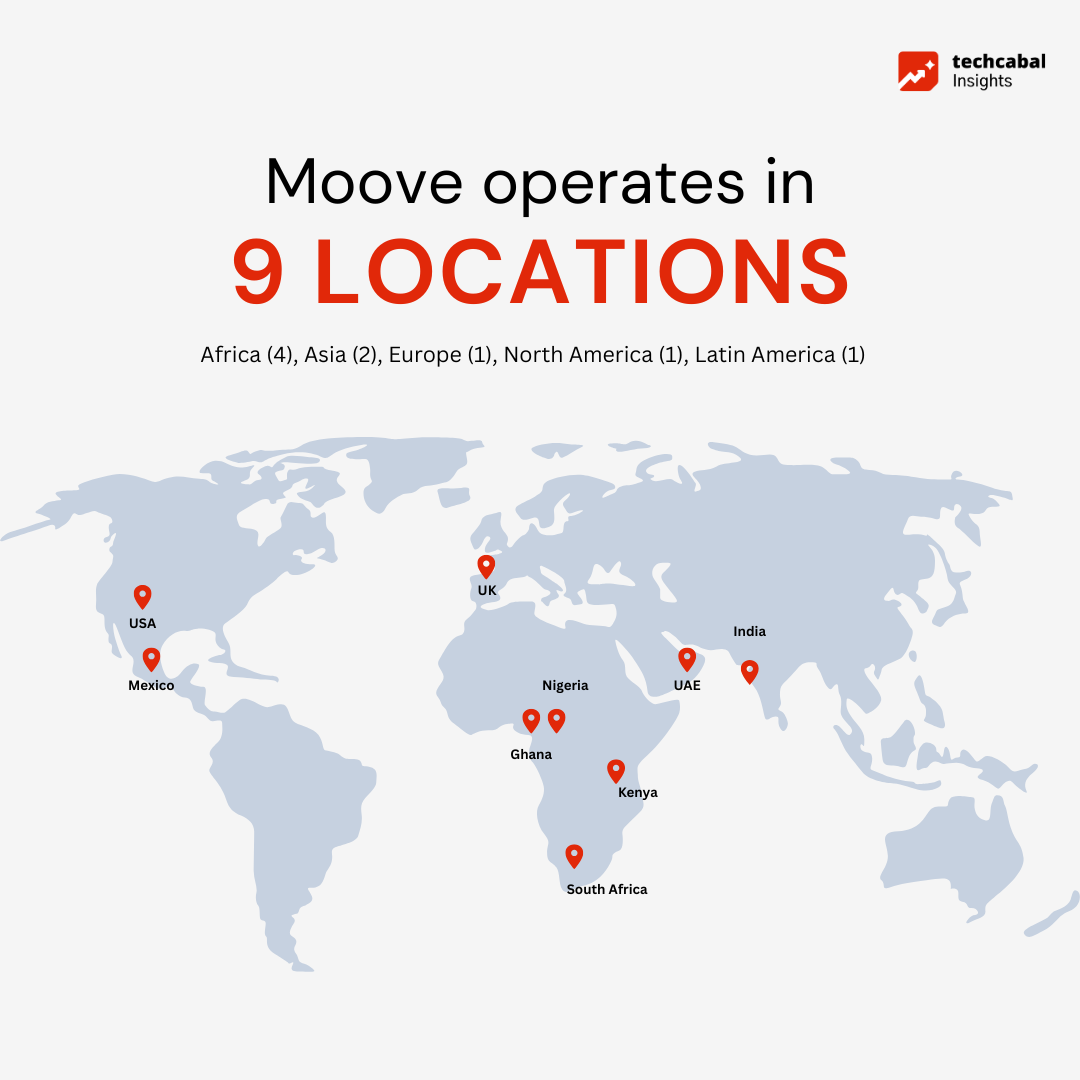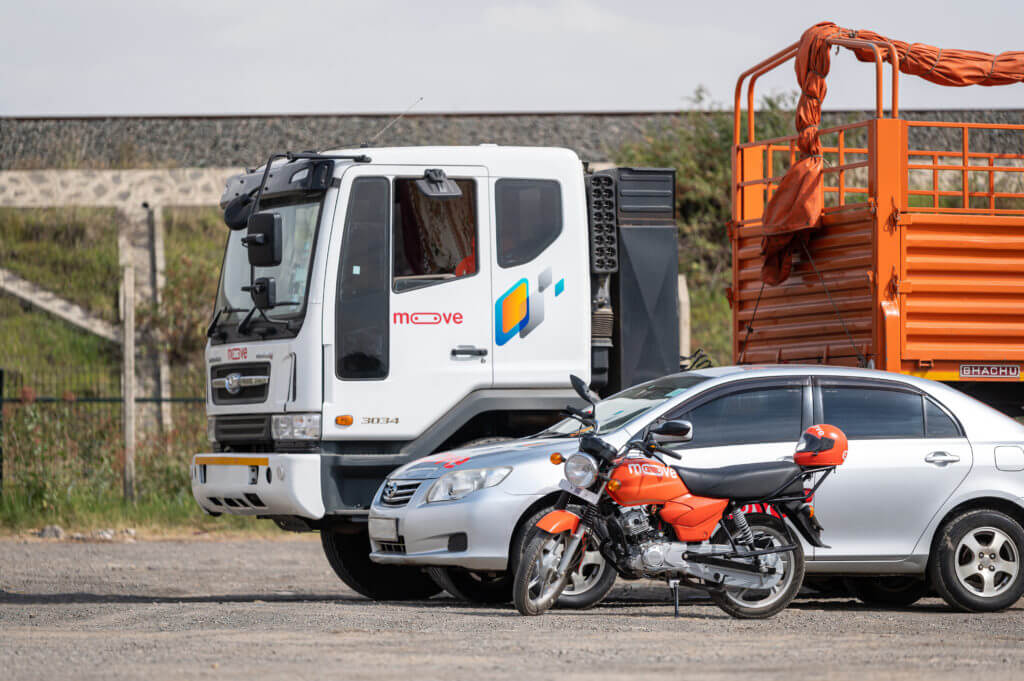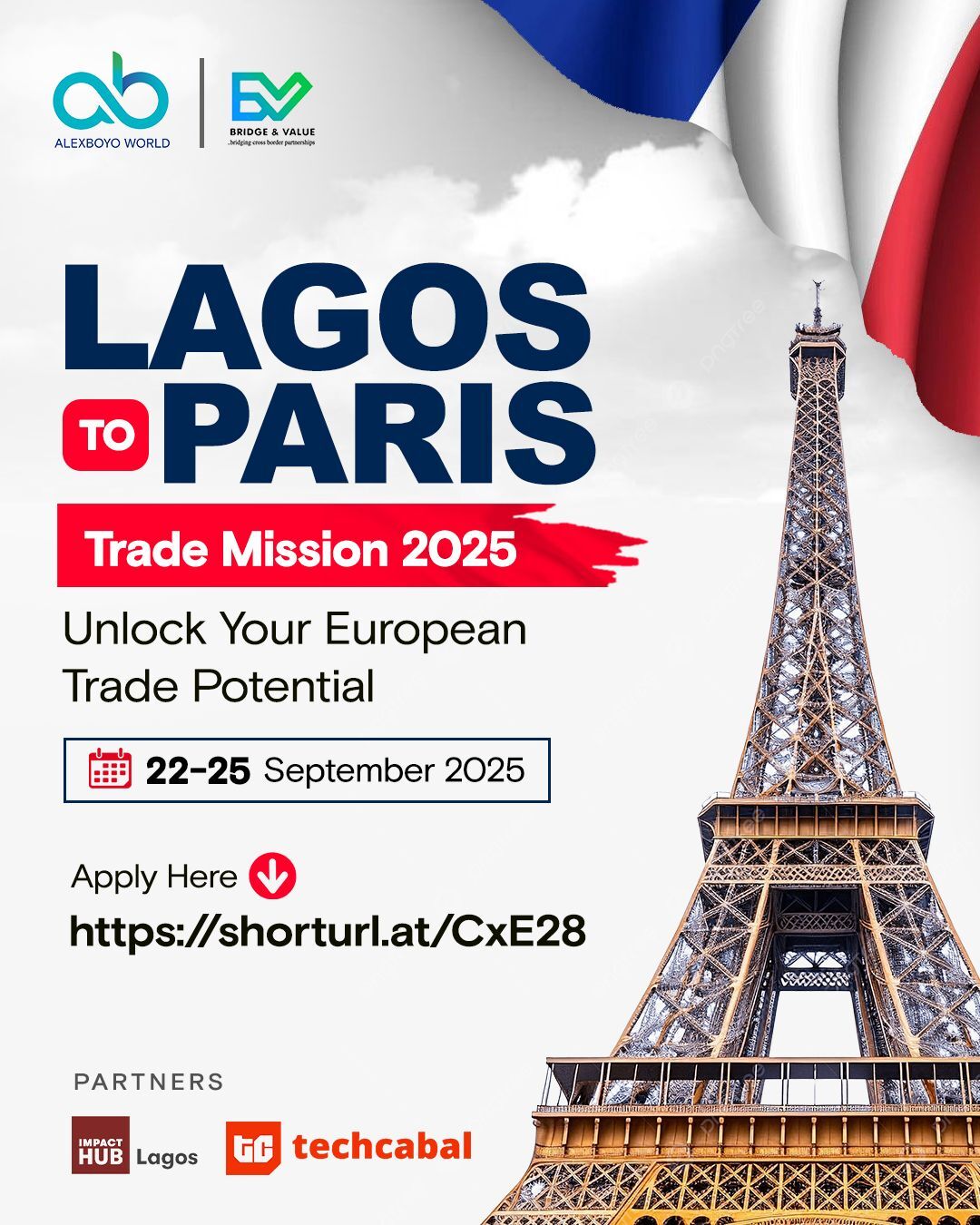First published 21 Sept, 2025
Image: Moove
Moove, the Lagos-based vehicle-financing startup that lets ride-hailing drivers buy cars in installments, is reportedly raising $300 million at a $2 billion valuation. It broke even last September, operates in more than ten markets, and claims to have $400 million in annual recurring revenue.
That’s a lot.
Two years ago, Moove was worth $750 million and doing $50 million in revenue. If you believe those numbers, revenue has grown almost 8x since then, and the valuation a little less than 3x. That is… actually not crazy. In a world where growth-stage companies are lucky to get the same multiple they got in 2021, Moove seems to be growing into its valuation.
Next Wave continues after this ad.
Investors are likely watching its unit economics very closely — default rates, cost of capital, and recovery rates on repossessed vehicles all drive whether this growth is sustainable. Moove has said in previous briefings that its default rates are below 3%, which, if true, would be far lower than typical subprime auto lending in the US, where those rates hover around 3.2–9.8%. Lower losses mean Moove can recycle capital faster and keep raising at reasonable valuations.
But the pitch here, per the same reports, is “autonomous vehicles.” Per Bloomberg, Moove wants this new equity to roll out a Waymo-powered self-driving fleet.
You could look at this two ways.
Next Wave continues after this ad.
First, there is the optimistic version. Moove has a dataset of driver repayments, knows how to price risk in mobility, and can translate that into a capital-efficient way to finance expensive autonomous vehicles. If you think robotaxis will be a trillion-dollar market, Moove is one of the few startups that is building both a fleet and a financing stack.
Sceptics might ask whether the economics of robotaxis will resemble those of ride-hailing at all. Financing human-driven cars relies on individual drivers absorbing operating costs and sharing revenue risk. In a fully autonomous future, Moove would need to own and operate fleets or lease them to corporate operators, a more capital-intensive model that could pressure margins. Investors may bet that Moove can price this risk better than a bank or a carmaker’s captive finance arm.
Then there is a sceptical version, where some may argue that Moove is a subprime auto lender with good marketing. “We broke even on EBITDA” sounds nice, but subprime auto lenders often look good right until credit losses hit. Autonomous cars are not here at scale yet. Moove’s business works because it can turn drivers’ future cash flows into repayments; in a driverless future, there are no drivers to lend to.
Next Wave continues after this ad.
Still, the $2 billion number is the most interesting part. If Moove really has $400 million in annual recurring revenue and is breaking even, a 5x revenue multiple is not insane for a fintech/lender hybrid. If anything, it’s cheap compared to some US-listed peers. The question is whether investors are paying for the revenue today or for the promise of the self-driving future.
Moove is either becoming the structured-credit engine of mobility in its biggest markets, including Nigeria, or just a very well-run car-finance company with a robotaxi slide in its pitch deck.

Moove is available in 9 locations across the globe. Chart by Margaret Awojide
Either way, $300 million is a big bet that the future of moving people around the world will still run on Moove’s balance sheet.
Next Wave ends after this ad.
Kenn Abuya
Senior Reporter
Thank you for reading this far. Feel free to email kenn[@]bigcabal.com with your thoughts about this edition of NextWave. Or just click reply to share your thoughts and feedback.
We’d love to hear from you
Psst! Down here!
Thanks for reading today’s Next Wave. Please share. Or subscribe if someone shared it to you here for free to get fresh perspectives on the progress of digital innovation in Africa every Sunday.
As always feel free to email a reply or response to this essay. I enjoy reading those emails a lot.
TC Daily newsletter is out daily (Mon – Fri) brief of all the technology and business stories you need to know. Get it in your inbox each weekday at 7 AM (WAT).
Follow on Twitter, Instagram, Facebook, and LinkedIn to stay engaged in our real-time conversations on tech and innovation in Africa.













